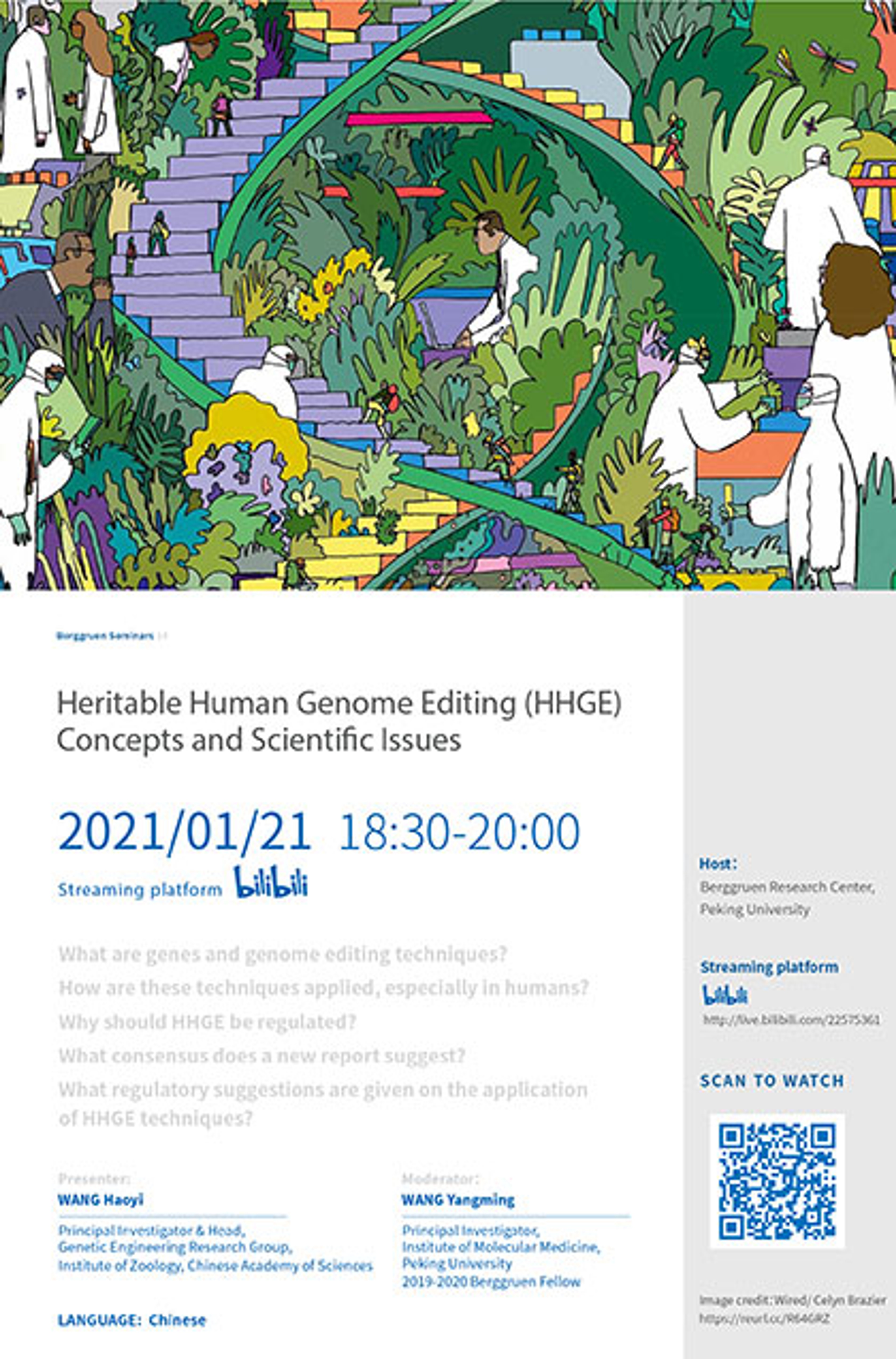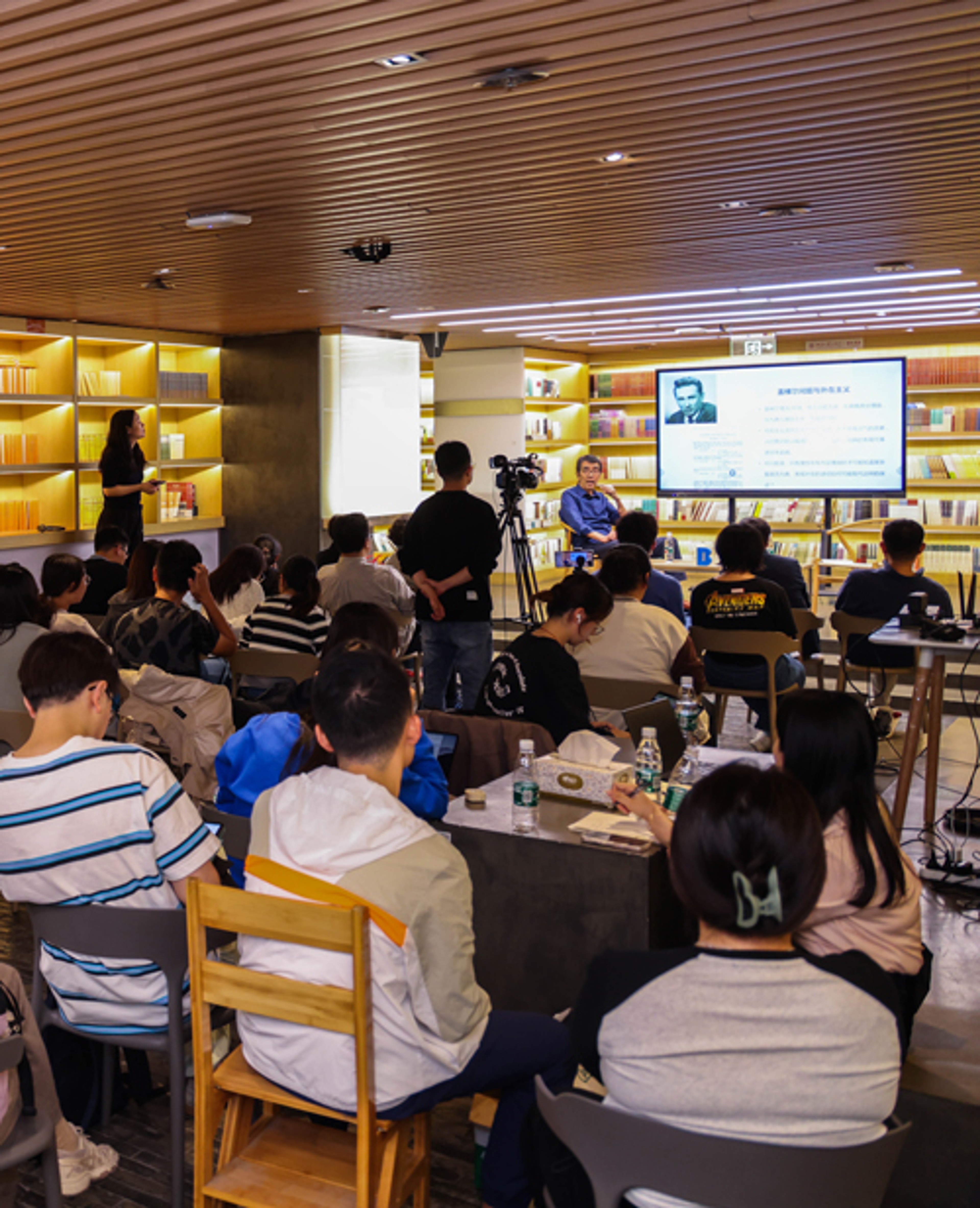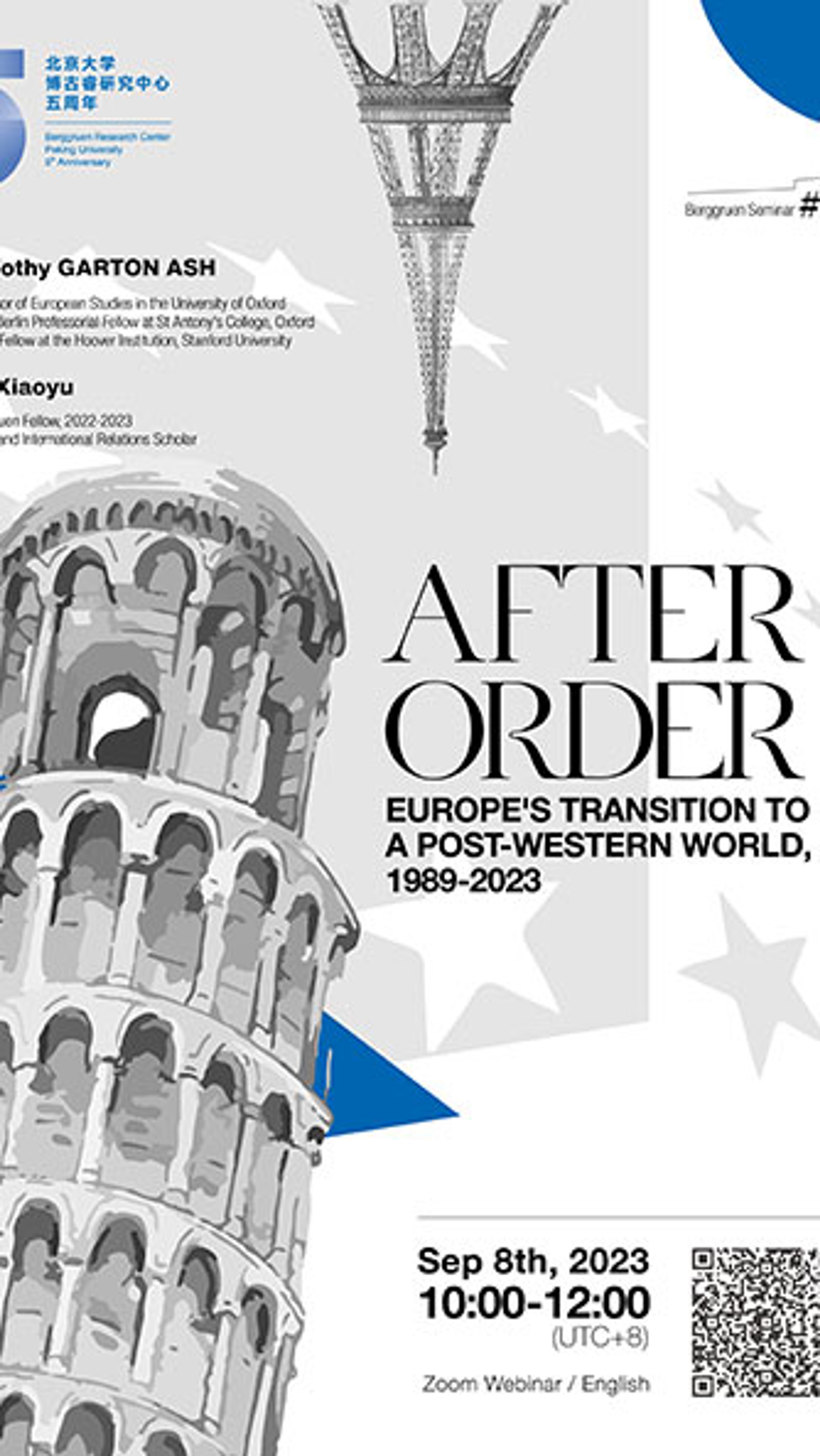Heritable Human Genome Editing (HHGE) Concepts and Scientific Issues
- Date: January 15, 2021

Note: This seminar will be in Chinese.
Advances in genome editing techniques have made it possible for humans to precisely modify the genetic elements and natures of various organisms. Huge value can be brought by applying these techniques in biological research, industry and agriculture, and the development of new medical techniques. But Heritable Human Genome Editing (HHGE) is ethically controversial and poses potential risks. The concept of genome editing techniques, HHGE techniques, and some related topics are discussed in this lecture, as well as the consensus of the international scientific community about these techniques.
Key Discussions:
• What are genes and genome editing techniques?
• How are these techniques applied, especially in humans?
• Why should heritable human genome editing (HHGE) be regulated?
• What consensus does the new report reach?
• What regulatory suggestions are given on the application of HHGE techniques?
Presenter:
Wang Haoyi, Principal Investigator & Head of the Genetic Engineering Research Group, Institute of Zoology, Chinese Academy of Sciences
Wang Haoyi earned his Ph.D. in Molecular Cell Biology from the University of Washington in 2009 and conducted postdoctoral research at the laboratory of Rudolf Jaenisch for the Whitehead Institute at the Massachusetts Institute of Technology from 2009 to 2014 to develop and apply genome editing techniques in pluripotent stem cells and mice. In May 2014, he was recruited by the Institute of Zoology, Chinese Academy of Sciences as a Principal Investigator and head of the genetic engineering research group. He has made several achievements in recent years, such as developing efficient gene editing methods in human pluripotent stem cells and CAR-T cells, developing a method for gene editing and embryo electroporation to generate mouse models, creating culture conditions for human naïve embryonic stem cells that allow the modeling of the random inactivation of the human X chromosome, and developing CRISPR-on and Casilio systems for in situ regulation of gene expression. In addition, he has published over 50 SCI papers which together have been cited more than ten thousand times. His laboratory is tasked with developing innovative gene therapy vectors and gene editing techniques, applying and improving these techniques to develop new CAR-T Cell therapies for preclinical and clinical research, and studying the epigenetic stability of human pluripotent stem cells. He was a representative of the Chinese Academy of Sciences to the International Commission on the Clinical Use of Human Germline Genome.
Moderator:
Wang Yangming, Principal Investigator, Institute of Molecular Medicine, Peking University, 2019-2020 Berggruen Fellow
Wang Yangming is a Principal Investigator at the Institute of Molecular Medicine at Peking University, 2019-2020 Berggruen Fellow. He studies the function of noncoding RNAs—the dark matter of our genome—and stem cells that hold the potential to cure a variety of diseases such as diabetes and neurodegenerative diseases. He has published more than 30 articles and written several book chapters in RNA biology and stem cell biology. He is interested in the impact of cutting-edge biotechnology development such as genome editing, DNA sequencing, genetic diagnosis, and stem cell therapy on human society. He holds a Ph.D. from the University of Illinois at Urbana-Champaign.
The 14th Berggruen Seminar organized by the Berggruen Institute China Center was live-streamed on Bilibili on January 21, 2021. Dr. Wang Haoyi, principal investigator and head of the genetic engineering research group at the Institute of Zoology, Chinese Academy of Sciences, was invited to discuss “Heritable Human Genome Editing: Concepts and Scientific Issues.” Hosted by 2019-2020 Berggruen Fellow Dr. Wang Yangming, principal investigator at the Institute of Molecular Medicine, Peking University, the event explored four topics: what genes and genome editing are, the applications of genome editing, heritable and non-heritable human genome editing, and scientific issues concerning heritable human genome editing.



















